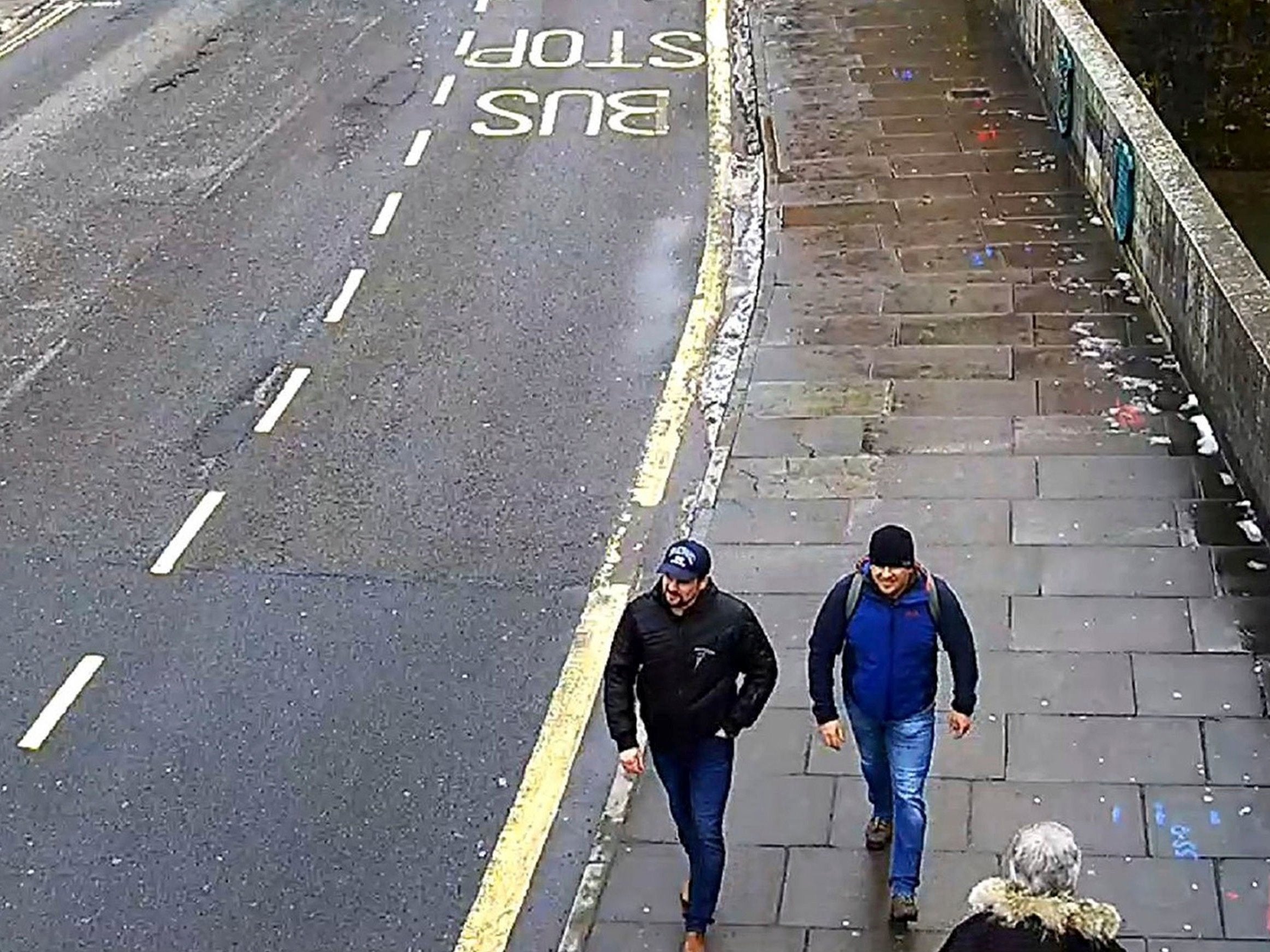Salisbury attack: Vladimir Putin says Russia knows real identities of novichok poisoning suspects
‘We have found them. There is nothing special or criminal about it, I can assure you,’ says president
Vladimir Putin has said there is “nothing criminal” about the two men accused of attempting to murder former spy Sergei Skripal with a novichok nerve agent in Salisbury.
The Russian president said his country’s officials know the real identities of the suspects and insisted they were civilians rather than military intelligence officers.
The Metropolitan Police last week released images of two men charged with poisoning Mr Skripal and his daughter Yulia in an assassination attempt the UK government believes was approved at “a senior level of the Russian state”.
Detectives said the Russian suspects were operating under aliases, Alexander Petrov and Ruslan Boshirov, when they travelled to Salisbury in March.
Mr Putin, speaking at an economic forum in the Russian port city of Vladivostok on Wednesday, confirmed his officials “know who these people are” but denied Britain’s claims that the men were members of GRU, Russia’s military intelligence service.
“We have found them,” he said. “There is nothing special or criminal about it, I can assure you. We’ll see soon.”
Asked during a panel discussion if the men worked for the military, Mr Putin said: “They are civilians of course.”
He suggested the men should come forward and speak to the media to clear their names.
“I would like to call on them so that they can hear us today: they should go to some media outlet. I hope they will come forward and tell about themselves,” Mr Putin said.

British investigators believe the suspects are “officers from the Russian military intelligence service”, Theresa May told MPs last week.
The prime minister stopped short of blaming Mr Putin personally but hinted the Kremlin had ordered Mr Skripal’s assassination, saying: “The GRU is a highly disciplined organisation with a well-established chain of command. So this was not a rogue operation. It was almost certainly also approved outside the GRU at a senior level of the Russian state.”
British prosecutors have deemed it futile to apply to Russia for the extradition of the two suspects, both thought to be aged in their 40s, but have obtained a European Arrest Warrant and sought the assistance of Interpol.
The men are also likely to be charged over the death of Dawn Sturgess, a 44-year-old mother-of-three poisoned in June after her partner Charlie Rowley inadvertently picked up a discarded perfume bottle containing the novichok in Salisbury.
The suspects are unlikely to ever face justice in the UK, home secretary Sajid Javid conceded on Sunday.
They fled back to Moscow on the day they allegedly poisoned Mr Skripal and will likely only be arrested if they stray into a country that is allied with Britain.
“The Russians will probably never let them leave the Russian Federation,” said Mr Javid.
The UK has hinted at new sanctions against Russia, with government insiders suggesting key GRU figures could be targeted with travel bans and asset freezes.
Mr Skripal served in the GRU for more than a decade before passing secrets to MI6 that unmasked undercover Russian spies in Europe.
He was sentenced to 13 years in prison for treason by espionage in 2006, but freed four years later as part of a high-profile spy-swap and flown to Britain.
It was assumed that he would be given a new identity and secret home, but he lived an apparently quiet life under his real name in Salisbury.
Mr Putin’s suggestion that the alleged state assassins may break cover recalled the assassination on British soil of former KGB agent Alexander Litvinenko.
His suspected killers, Andrey Lugovoy and Dmitry Kovtun, have given TV interviews in which they denied any involvement.
Bookmark popover
Removed from bookmarks